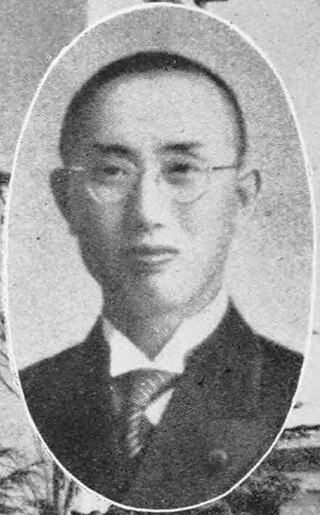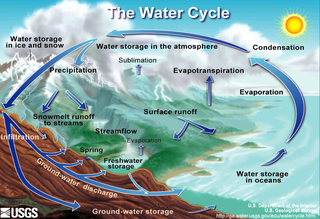
Pacifism is the opposition or resistance to war, militarism or violence. The word pacifism was coined by the French peace campaigner Émile Arnaud and adopted by other peace activists at the tenth Universal Peace Congress in Glasgow in 1901. A related term is ahimsa, which is a core philosophy in Indian religions such as Hinduism, Buddhism, and Jainism. While modern connotations are recent, having been explicated since the 19th century, ancient references abound.

World peace is the concept of an ideal state of peace within and among all people and nations on Earth. Different cultures, religions, philosophies, and organizations have varying concepts on how such a state would come about.

Televangelism and occasionally termed radio evangelism or teleministry, denotes the utilization of media platforms, notably radio and television, for the marketing of religious messages, particularly Christianity.

As-salamu alaykum, also written salamun alaykum and typically rendered in English as salam alaykum, is a greeting in Arabic that means 'Peace be upon you'. The salām has become a religious salutation for Muslims worldwide when greeting each other, though its use as a greeting predates Islam, and is also common among Arabic speakers of other religions.

The World Climate Research Programme (WCRP) is an international programme that helps to coordinate global climate research. The WCRP was established in 1980, under the joint sponsorship of the World Meteorological Organization (WMO) and the International Council for Science (ICSU), and has also been sponsored by the Intergovernmental Oceanographic Commission (IOC) of UNESCO since 1993.

Interfaith dialogue refers to cooperative, constructive, and positive interaction between people of different religious traditions and/or spiritual or humanistic beliefs, at both the individual and institutional levels.
Religious broadcasting, sometimes referred to as faith-based broadcasts, is the dissemination of television and/or radio content that intentionally has religious ideas, religious experience, or religious practice as its core focus. In some countries, religious broadcasting developed primarily within the context of public service provision, whilst in others, it has been driven more by religious organisations themselves. Across Europe and in the US and Canada, religious broadcasting began in the earliest days of radio, usually with the transmission of religious worship, preaching or "talks". Over time, formats evolved to include a broad range of styles and approaches, including radio and television drama, documentary, and chat show formats, as well as more traditional devotional content. Today, many religious organizations record sermons and lectures, and have moved into distributing content on their own web-based IP channels.

Zakir Abdul Karim Naik is an Indian Islamic public orator who focuses on comparative religion. He is the founder and president of the Islamic Research Foundation (IRF) and Peace TV. He is a well-known figure in the Islamic world, and while he does not claim to be a follower of any one school of thought in Islam, he is most closely associated with the Salafi school of thought.

Risshō Kōsei Kai (立正佼成会); until June 1960, 大日本立正交成会 is a Japanese new religious movement founded in 1938 by Nikkyō Niwano and Myōkō Naganuma. Risshō Kōsei Kai is organized as a lay Buddhist movement, which branched off from the older Reiyūkai, and is primarily focused around the Lotus Sutra and veneration of ancestors.
Public Affairs Committee (PAC) was founded in 1992 by the religious community and other pressure groups in Malaŵi to enter into a dialogue with Kamuzu Banda's Presidential Committee on Dialogue in the transition period from the one-party to the multiparty system of government in Malaŵi. Most accounts of the transition credit PAC with a major role at this crucial point in the younger history of Malaŵi.
The first National Conference on Environment and Development in South Africa was held at the University of the Western Cape during June/July 1991. It saw at least 231 representatives from a wide range of organisations discussing the links between environmental degradation and the political situation in Southern Africa.

Mirza Masroor Ahmad is the current and fifth leader of the Ahmadiyya Muslim Community. His official title within the movement is Fifth Caliph of the Messiah. He was elected on 22 April 2003, three days after the death of his predecessor Mirza Tahir Ahmad.

Nikkyō Niwano KCSG was one of the founders and the first president of the Buddhist organization Risshō Kōsei Kai.
WCRP, branded on-air as 88.1 Inspira, is a radio station broadcasting a Contemporary Christian format. Licensed to Guayama, Puerto Rico, it serves the greater Puerto Rico area. The station is currently owned by Diaz-Pabon Ministries, through the licensee, Ministerio Radial Cristo Viene Pronto, Inc.

The Global Energy and Water Exchanges Project is an international research project and a core project of the World Climate Research Programme (WCRP).

Dr. William Fray Vendley was the Secretary General of the World Conference of Religions for Peace (WCRP). He is a member of its World Council and coordinates the activities and projects of WCRP's Inter-religious Councils in 96 countries and in five regions, including the Africa, Asia Europe, Latin America, and the Middle East. He is a member of the Council on Foreign Relations.
Dhanashree Talwalkar also known as Didiji, which literally translates as elder sister in Hindi, is an Indian philosopher, spiritual leader, social reformer. She has represented Swadhyay and Indian philosophy at different conferences.

Sirajuddin Muhammad "Din" Syamsuddin, is an Indonesian politician and formerly the Chairman of Muhammadiyah for two terms from 2005 to 2010 and 2010 to 2015. His wife was named Fira Beranata, and has 3 children. He was entrusted as the Chairman of the Indonesian Ulema Council Center, he previously served as Vice Chairman of the Indonesian Ulema Council replacing Center Dr (HC), KH. Sahal Mahfouz, who died on Friday, January 24, 2014.

Angelo Innocent Fernandes (1913-2000) was the Roman Catholic Archbishop of Delhi from 1967 to 1990. He was born in Karachi on 28 July 1913, trained for the priesthood, and was ordained in 1937 in Bombay (Mumbai) where he became Rector of the Cathedral. In 1960 he was appointed Secretary General of the Catholic Bishops Conference of India, and later served on two Vatican Council commissions under Pope John XXIII. He was a founding member of the World Conference on Religion and Peace.

"No Gods No Masters" is a song by American alternative rock band Garbage. It was released as the second single from the band's seventh studio album No Gods No Masters (2021) on April 28, 2021 by their independent label Stunvolume.













